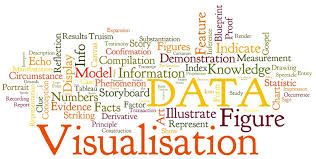
Researchers and business users alike analyze big data in order to glean insights as to what customers actually want and need.
 Data has value and companies can't live without it, but just how much is data worth? How much does it cost to analyze big data and derive value from it? In the past, technologists provided upper management with historical data so they could spot market trends.
Data has value and companies can't live without it, but just how much is data worth? How much does it cost to analyze big data and derive value from it? In the past, technologists provided upper management with historical data so they could spot market trends.
Big data storage: Analytics takes small first steps in Turkey
 Big data is a hot buzzword of the past year or two and refers to high volumes of data being analysed often in near real time for actionable purposes. What makes big data different from good old data mining is the huge amount of data together with a high rate of change in the dataset and the wide variety of data types analysed.
Big data is a hot buzzword of the past year or two and refers to high volumes of data being analysed often in near real time for actionable purposes. What makes big data different from good old data mining is the huge amount of data together with a high rate of change in the dataset and the wide variety of data types analysed.
An Ethics Framework for Big Data
 What do Target and the NSA have in common? They both used Big Data and analytics in a way that inspired a major slap on the hand. Target was predicting which of their customers were pregnant and sending them targeted coupons for baby products, which prompted the ire of a father whose teenage daughter hadn’t told him yet.
What do Target and the NSA have in common? They both used Big Data and analytics in a way that inspired a major slap on the hand. Target was predicting which of their customers were pregnant and sending them targeted coupons for baby products, which prompted the ire of a father whose teenage daughter hadn’t told him yet.
How data visualization can identify political gerrymandering
 Gerrymandering, the practice of manipulating the boundaries of an electoral constituency to favor one political party, dates back to 1812 when Massachusetts Governor Elbridge Gerry signed into law a redistricting plan that was designed to benefit his political party.
Gerrymandering, the practice of manipulating the boundaries of an electoral constituency to favor one political party, dates back to 1812 when Massachusetts Governor Elbridge Gerry signed into law a redistricting plan that was designed to benefit his political party.
Panel at Dell Conference advises companies to use Big Data wisely
 The big takeaway from a panel discussion on big data at the Dell Women’s Entrepreneur Network conference is to use data and analytics responsibly. “Use data smartly,” said Matt Wolken, vice president and general manager of information management at Dell Software.
The big takeaway from a panel discussion on big data at the Dell Women’s Entrepreneur Network conference is to use data and analytics responsibly. “Use data smartly,” said Matt Wolken, vice president and general manager of information management at Dell Software.
Moving from what Big Data is, to what Big Data can do
 As Big Data technology has grown more ubiquitous, more and more companies are moving beyond asking what is Big Data, to what Big Data can do? We have continuously collected these use cases as examples of the business objectives that can be achieved with Big Data. Early adopters of Big Data, such as T-Mobile, have seen their
As Big Data technology has grown more ubiquitous, more and more companies are moving beyond asking what is Big Data, to what Big Data can do? We have continuously collected these use cases as examples of the business objectives that can be achieved with Big Data. Early adopters of Big Data, such as T-Mobile, have seen their
Big Data 2.0
 The first phase of big data (Big Data 1.0) was all about “getting it.” The more data we had, the better the targeting, measurement and insights capabilities we could attain. The big data ecosystem has now reached a tipping point where the basic infrastructural capabilities for supporting big data
The first phase of big data (Big Data 1.0) was all about “getting it.” The more data we had, the better the targeting, measurement and insights capabilities we could attain. The big data ecosystem has now reached a tipping point where the basic infrastructural capabilities for supporting big data
Big Data = Big Money: The ROI of Business Intelligence
 The ‘Big Data’ revolution is here; companies are collecting data on transactions, interactions, and every metric imaginable. However, such undertakings aren’t cheap. Massive data collection can have massive costs. Which begs the question - how can companies guarantee ROI for their business intelligence efforts?
The ‘Big Data’ revolution is here; companies are collecting data on transactions, interactions, and every metric imaginable. However, such undertakings aren’t cheap. Massive data collection can have massive costs. Which begs the question - how can companies guarantee ROI for their business intelligence efforts?


